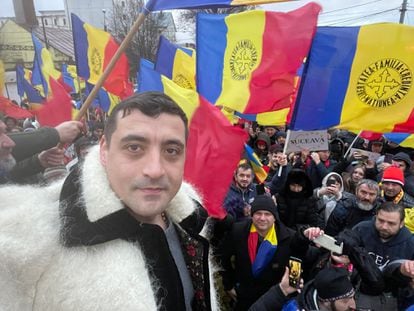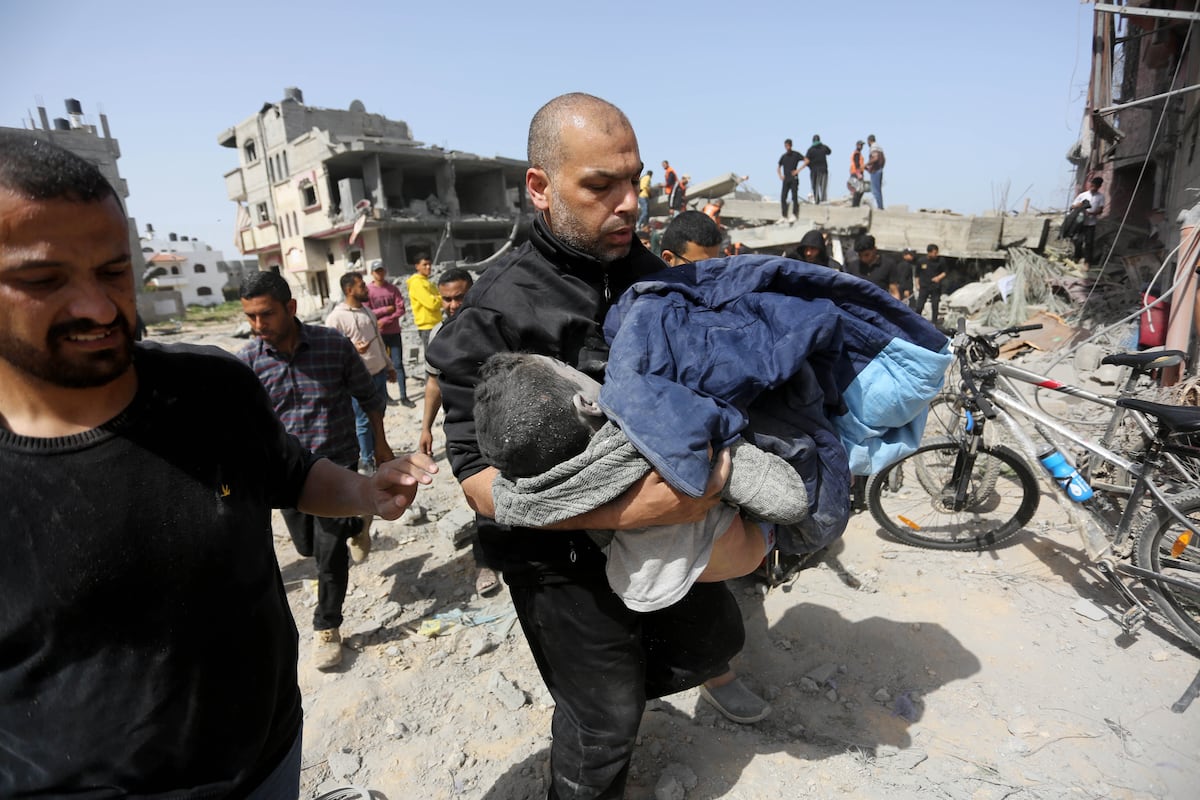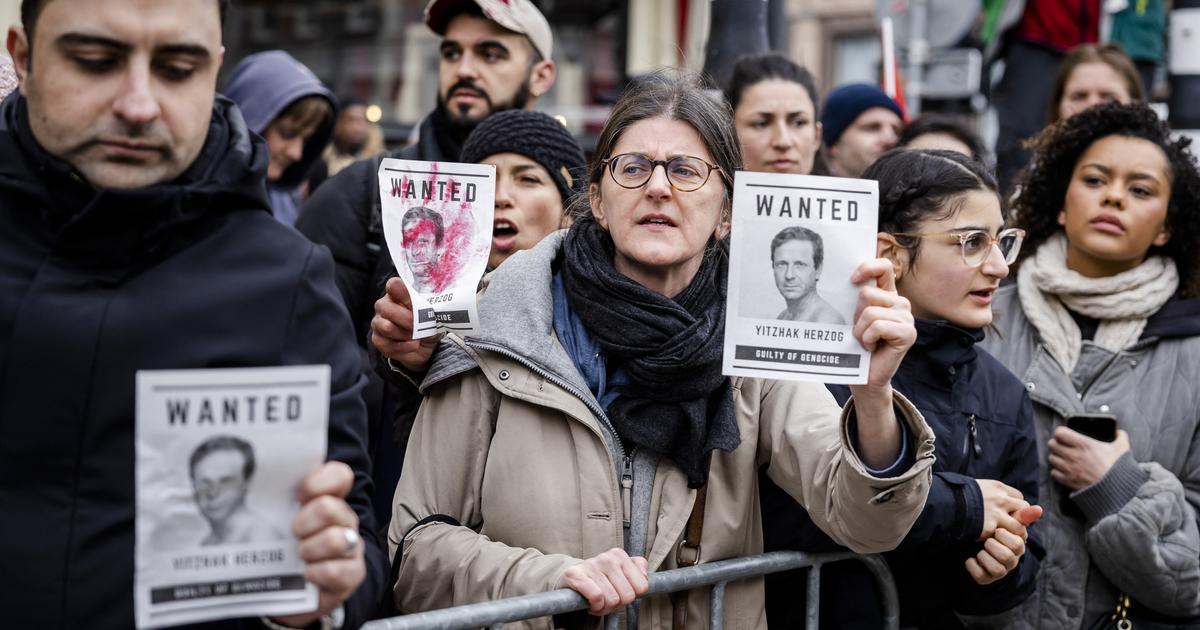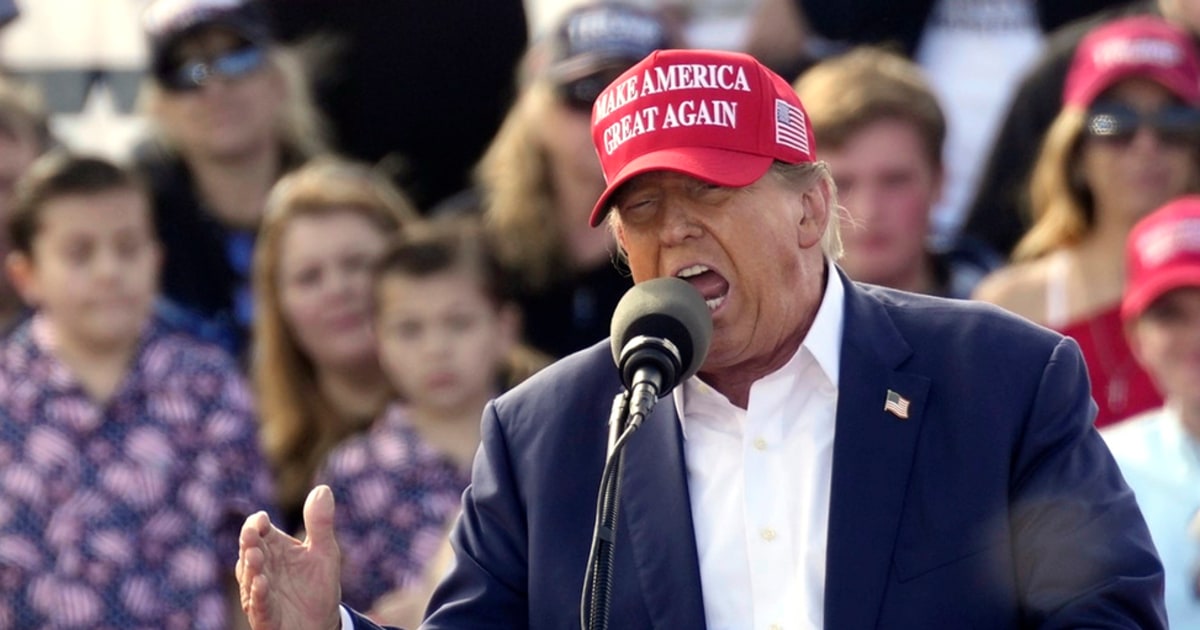Spurred by the latest polls, which elevate it to second position in voting intention, the far-right Alliance for the Union of Romanians (AUR, acronym for gold in Romanian) begins to openly display the denial that nests in its ranks. The training considers that the Holocaust was a "minor issue" and rejects that its study becomes compulsory in schools through a complementary subject, as approved by Parliament. The leader of the formation, George Simion, said Monday that "raising minor issues to subject rank" - in this case the deaths of hundreds of thousands of Jews and Roma under the government of the country, an ally of Nazi Germany during the Second World War - is "a systematic action to undermine the quality of education." In your opinion,it is enough to treat the Holocaust in "simple lessons in existing subjects."
A year after its creation, the extremist party broke into the Romanian Parliament as the fourth force after the legislative elections of December 2020. Last December, after a long political crisis marked by the pandemic and that resulted in a government pact between Social Democrats and Conservatives, a demonstration company placed it only behind the Social Democratic Party (PSD) and ahead of the National Liberal Party (PNL), while another poll projected a technical tie with the latter formation. The ultra party, Eurosceptic and staunch defender of its sovereignty vis-à-vis the EU and NATO, remarks that “if the Ministry of Education avoids training young people on the fundamental events of Romanian culture and spirituality,it would be better to change its name to the Ministry of Population Reeducation for the Global Market ”.
The controversial claims, which come as a result of the Romanian Parliament voting on November 16 in favor of making the history of the Holocaust a compulsory subject in schools, has generated a great deal of controversy.
The ultra-nationalist party, which voted against the law, called for an end to "ideological experiments on Romanian children", and its position has drawn strong criticism from its political opponents.
AUR ultras leader George Simion in a picture he posted on Twitter during a demonstration in Romania.
@georgesimion
The government representative against xenophobia and anti-Semitism, NLP deputy Alexandru Muraru, has described the far-right formation as "a threat against the constitutional order." “AUR has praised war criminals from the rostrum of Parliament; outraged by symbols the memory of the victims of the Holocaust; and their representatives frequently reproduce, both on the Internet and in public statements, anti-Semitic messages or deny and relativize the Shoah, ”the liberal politician stressed. For his part, the current PSD strongman, Marcel Ciolacu, believes that AUR should not be banned because it has received the trust of more than half a million citizens. However, he has urged radical training to clearly explain whether it condemns the Holocaust.
Outlawing the party, as Muraru hinted, is not impossible, but it is complicated. That judicial route has only been used once in the country to ban the Communist Party. In addition, the supporters of the anti-liberal and ultra-conservative ideas of the formation show their strength at the polls, but also on the street. Two weeks ago, AUR supporters, opposed to covid-19 vaccines, violated the perimeter of Parliament and drew a swastika on a European Union flag. His supporters were protesting against plans to make the covid passport mandatory in workplaces. An idea with which the Executive sought to pressure to increase the vaccination rate, although it quickly reversed itself. In Romania, just over 40% of the population has the full pattern.
"How can genocide, the destruction of a community based on ethnic criteria, be considered a minor topic that can be taught in a single lesson?" Asks the Elie Wiesel Institute, which fights to preserve the memory of the Shoah. In Romania, there is still a general lack of knowledge about the atrocities committed during the Second World War and the role that this Eastern European country played. Precisely, the Elie Wiesel National Institute for the Study of the Holocaust revealed a survey on December 23 in which it stands out that 59% of those interviewed consider Marshal Ion Antonescu, a faithful collaborator of Adolf Hitler, "a great patriot." Even 41% were in favor of his rehabilitation.
According to data from the international committee of this Romanian center, which bears the name of the Nobel Prize winner, local authorities were responsible for the deaths of between 280,000 and 380,000 Jews and 11,000 Roma, between 1940 and 1944. In addition, some 135,000 Jews who lived under control Hungarians in northern Transylvania were also killed in the Holocaust. Most of the survivors emigrated to Israel during the communist dictatorship that followed the Nazi invasion. At present, there are about 3,000 Jews living in Romania. "Denying the Holocaust by hiding behind parliamentary immunity means keeping alive anti-Semitic hatred, the political consequences of which led to the Holocaust," underlines the Elie Wiesel Institute.
Follow all the international information on
and
, or in
our weekly newsletter
.



/cloudfront-eu-central-1.images.arcpublishing.com/prisa/ZBRP3A2U4BGYHDS3IA4RYAB65Q.jpg)




